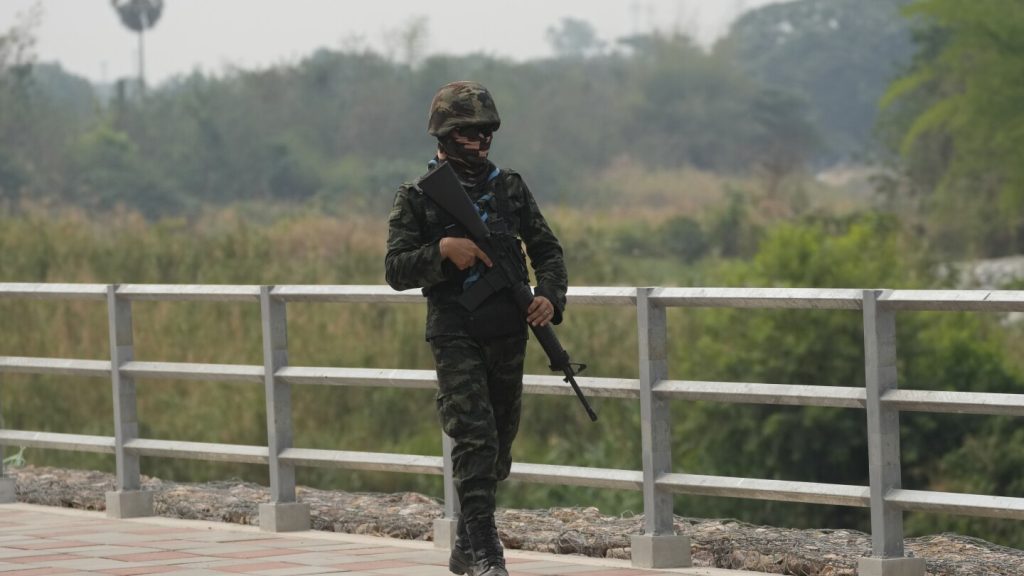The tensions between Thailand and Myanmar escalated after the Myanmar military lost control of an important border trading town to guerrillas of the ethnic Karen National Union and its allies. The military’s hasty retreat has raised concerns about potential retaliatory attacks or a concerted counter-attack against the town, which could lead to thousands of people fleeing into Thailand for safety and disrupt border trade. Thailand’s foreign minister urged Myanmar’s military authorities to exercise restraint and avoid violence, emphasizing the importance of peace in the region for both trading and the well-being of the neighbors.
Despite the initial signs of restraint from Myanmar’s military, concerns about potential violence remain. Reports of explosions and airstrikes in the area indicate ongoing tensions, with some residents feeling uneasy about the quiet period, fearing that it could signal an escalation of the conflict. Thai troops have been deployed near the bridges connecting Myawaddy and Mae Sot to monitor the situation and prevent any incursions from trapped Myanmar soldiers. The Karen National Union, a leading political body for the Karen ethnic minority, has outlined plans to establish administrative mechanisms and ensure stability and law enforcement in the area.
The Karen people have been engaged in a decades-long struggle for greater autonomy from Myanmar’s central government, and their recent gains in the conflict reflect a broader opposition movement against the military’s takeover in 2021. The setbacks faced by Myanmar’s armed forces have been noted by neighboring countries, including Thailand, which have generally been cautious about intervening in the crisis. The uncertainty surrounding the coordination and consolidation of opposition forces towards achieving their political objectives, as well as the implications of changing control over border crossings on neighboring capitals, remains a key concern for regional stability.
Efforts are being made to address the security and humanitarian challenges faced by residents on both sides of the border, with the Karen National Union seeking to facilitate trade and cooperation with the Thai government and international partners. The presence of refugees from Myanmar in long-term camps in Thailand underscores the longstanding impact of conflict and displacement in the region, highlighting the need for sustainable solutions and peaceful resolution of the ongoing crisis. The role of neighboring countries in supporting peace efforts and addressing the root causes of the conflict will be crucial in promoting stability and security in the border region.
The developments in the conflict between Myanmar’s military and opposition forces highlight the complex dynamics at play in the region, with implications for both internal politics and regional relations. The need for diplomatic dialogue and mediation to prevent further violence and displacement remains paramount, with the international community closely monitoring the situation and advocating for peaceful resolutions. As the situation continues to evolve, the role of key stakeholders, including neighboring countries and international organizations, in supporting peacebuilding efforts and addressing humanitarian needs will be critical in mitigating the impact of the conflict on vulnerable populations and promoting stability in the region.


